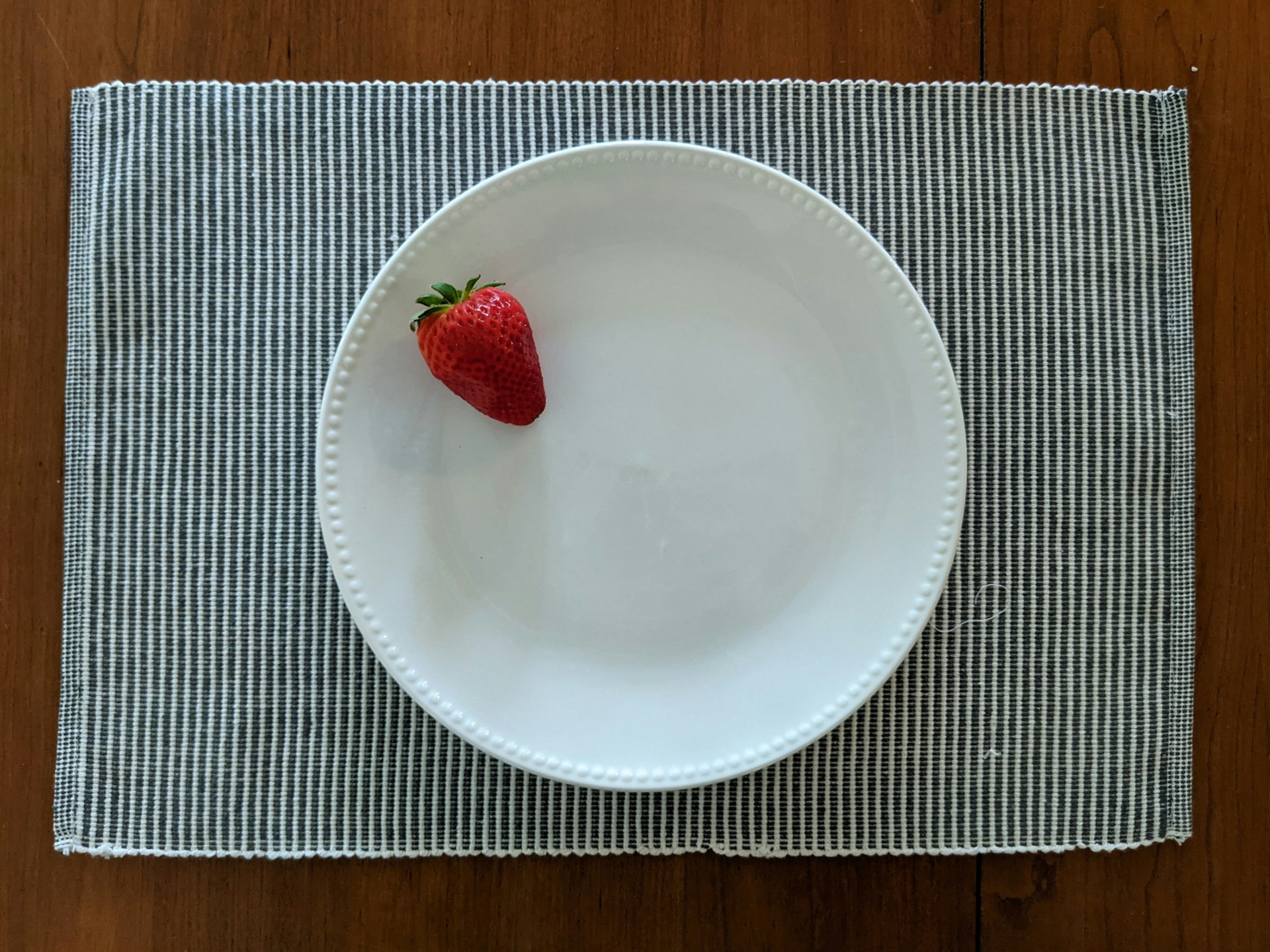There are many different strategies for losing weight, but ultimately, what brings success is burning more calories than you eat. When you first start dieting and incorporating exercise into your routine, you might notice that you are shedding pounds pretty quickly and are pleased with the results. Then, your body may begin to adjust to this new routine and you may find yourself stalled where the scale is no longer descending. You, my friend, have just been introduced to the weight loss plateau.
Hitting a plateau in weight loss can be super frustrating! After all, you were trying so hard, doing all you could, and things were going so well.
Today, we are going to discuss this very common but annoying occurrence. We hope to shed some light on why experts think it happens and provide you with some useful information on how to get past weight loss plateaus.
{{cta_button}}
Understand That Hitting A Weight Loss Plateau Is Common
Researchers have compared a variety of diets and concluded that, despite the method used if a calorie deficit is achieved over an 8-to-12-week time frame, individuals can lose approximately the same amount of weight. Meaning, your body doesn’t really care which type of diet or exercise program you choose to create the deficit; as long as you are eating fewer calories than your body is burning, you can expect to lose weight in the first several months at about the same rate. The findings of this research then went on to report that when they studied these same individuals at 24 weeks or more, only around 20% of them were able to sustain their weight loss.
People often think that weight loss is a straightforward process, like putting money in a gumball machine. You put the money in, turn the knob, and you get a gumball, right? You create a calorie deficit, and you lose weight, right? Well, yes and no. Losing weight is much more complex than that, and it is further complicated by the fact that every person’s body has its own unique DNA, family history, hormonal balance, and more. These varying elements can significantly affect an individual's ability to lose weight and keep it off, which is why the same strategy does not work for everyone. Furthermore, even a strategy that has been working for you can become ineffective.
If this is happening or has happened to you, you are not alone. Hitting a weight loss plateau is very normal, and once you understand some of the reasons it happens, you are armed with the knowledge you need to overcome this frustrating obstacle.
What Is A Weight Loss Plateau, And What Is The Cause?
A weight loss plateau is when an individual stops losing weight even though they continue to do the same things that were initially successful. Some of the reasons that this can occur include:
Set Point
One theory that is used to explain why a weight loss plateau occurs is that your body naturally has a built-in regulation process that works to keep your body at a set weight. When you deviate from this number, your body biologically aims to rebalance itself. It does this through a series of changes, such as lowering your basal metabolic rate, which controls how fast your body burns energy, and adjusting your hormone levels, which control hunger and satiety to prompt you to eat more. It also lowers the thermogenesis level, which regulates how much energy it takes for your body to function while at rest and makes adjustments that affect the storage of fat vs. burning it.
Your Body’s Self-Preservation Mode Kicks In
When you significantly reduce the number of calories that you are taking in, your body thinks it is going to starve, so it begins making metabolic changes to become more efficient. While this was a helpful and necessary attribute back when you did not have grocery stores and had to forage for food, it is frustrating when you are trying to shed some weight. Your body actually works against you by reducing how much energy (calories) it is burning when you are in motion and at rest. It also changes your hormone levels and produces more ghrelin, which makes you feel hungrier, and less leptin, which gives you that content and satisfied feeling.
These hormonal changes can also increase your level of fatigue, so you are left feeling like you have no energy and are hungrier than ever, which is a lethal combination when you are trying to lose weight. You are working hard but seeing no changes because your body has adjusted itself and put you on a frustrating weight loss plateau. This is where many individuals give up and stop trying, which backfires on them, often causing them to gain more weight than they previously lost. The combination of feeling hungry and the reduction in their energy level causes them to overeat and become more sedentary.
>
How Many Weeks Is Considered A Weight Loss Plateau?
If you have been following the same reduced-calorie diet and exercise plan and have been steadily losing weight, but then your weight loss stops, you are on a weight loss plateau. Most experts will say these can last a minimum of four weeks, or they can last for months.
If you find yourself in this situation, it is important to remember that while the scale may not reflect changes to your weight, eating healthy and exercising are improving your health and making your body stronger. You must also keep in mind that your body composition may be changing, and you may be exchanging fat for lean muscle. You may be losing inches and becoming more toned, so it is important to look at the entire picture and not just the readout on the scale.
</section{{cta_small}}
How Can I Break This Weight Loss Plateau?
Breaking through a weight loss plateau can be tricky, but the good news is that you have many strategies you can try. Everyone is different, so you will need to find the one or combination that works best for you. Also, keep in mind that you may need to constantly switch it up, as one may work for a while and then become ineffective because your body is trying to outsmart you once again. Some strategies that you can try include:
Increase The Intensity Of Your Exercise
If you are not feeling like you are exerting yourself during your exercise sessions, if you're not sweating or feeling challenged, then it's likely your body has gotten used to this activity and it no longer requires the same amount of calorie expenditure. Your workouts should be challenging, but not so much that your body feels exceptionally strained. Change up your routine and keep an eye on your heart rate, which can help you determine the level of your workout.
Keep Consistent With Your Diet
Many individuals make the mistake of thinking they need to further cut their calorie intake and deprive themselves of food when they are trying to lose weight. The truth is that your body needs food to function properly, and if you are eating a healthy, low-calorie diet, you just need to remain consistent. If you identify areas in your current diet that fall outside of the “healthy” boundaries, then you can make the necessary adjustments.
The whole idea behind maintaining a healthy weight is that you have to be able to sustain your lifestyle habits. If you are constantly feeling deprived of everything, you will probably not stick with it long-term. It is important to come up with a dietary plan that you can live with for the foreseeable future because consistently eating a healthy diet is going to be the key to better health and sustainable weight loss.
Take Inventory Of Your Lifestyle
Many people who are trying to lose weight do not understand how their bodies respond to weight loss efforts. There are several different things that can influence your ability to lose weight and can even stop your progress, contributing to a plateau in weight loss.
Making sure you are getting enough sleep, staying hydrated, and managing stress can help with metabolism regulation and can make a significant difference in how your body responds to your attempts at losing weight.
Get Help From Batash Endoscopic Weight Loss Center
If you have hit a weight loss plateau, we can help. Do not wait until you are so discouraged that you sabotage the progress you have made. The team of experts at Batash Endoscopic Weight Loss Centers understands how to overcome the challenges you are facing. Early intervention can keep you on track and prevent you from having to work harder to make up for lost progress.
During your consultation, we will talk about the strategies you have been using and get a clear understanding of your current circumstances and your future goals. We will discuss the options that are available to help get you there, then put a personalized plan in place and provide the support you need to succeed. You may be a good candidate for a non-surgical weight loss procedure such as Suture Sculpt ESG or an intragastric balloon such as the Orbera or Spatz3. Sometimes, prescription medication can be a very effective solution for overcoming a weight loss plateau.
Don’t Panic, And Stay Consistent
Keeping your weight at a healthy level is not a temporary endeavor, but a way of life. It takes remaining consistent and trading unhealthy behaviors for those that help improve your health as a whole. Research has shown that even a small 5% to 15% decrease in your total weight can substantially improve your metabolic health and provide improvements in conditions such as diabetes type 2 and hypertension, and lower your risk for other serious conditions.
Don’t let a weight loss plateau derail your journey to better health or keep you from reaching your goals. If you are consistent and continue to eat healthy, exercise, and get help when you need it, you can reach your goals and improve your health.
Do not wait until things snowball and get worse; get in touch with Batash Endoscopic Weight Loss Center today and set up your appointment. Losing weight is hard, but knowing what you are up against and how to overcome these challenges can be made easier when you are working with specially trained experts like Dr. Steven Batash.
{{cta_button}}








